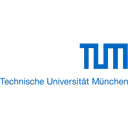This course is part of Digitalisation in Aeronautics and Space Specialization.
This course cannot be purchased separately - to access the complete learning experience, graded assignments, and earn certificates, you'll need to enroll in the full Digitalisation in Aeronautics and Space Specialization program. You can audit this specific course for free to explore the content, which includes access to course materials and lectures. This allows you to learn at your own pace without any financial commitment.
4.8
(94 ratings)
5,060 already enrolled
Instructors:
English
What you'll learn
Understand the impact of digital transformation on space industry workflows and processes
Identify challenges and opportunities created by digitalization in spacecraft mission and system design
Evaluate the implementation of GNSS for civil aviation navigation and safety-critical applications
Analyze cloud-based access, archiving and processing technologies for Earth Observation data
Recognize applications of artificial intelligence in satellite data evaluation
Assess cybersecurity threats and strategic vulnerabilities in space systems
Skills you'll gain
This course includes:
4.2 Hours PreRecorded video
7 assignments
Access on Mobile, Tablet, Desktop
FullTime access
Shareable certificate
Closed caption
Get a Completion Certificate
Share your certificate with prospective employers and your professional network on LinkedIn.
Created by
Provided by

Top companies offer this course to their employees
Top companies provide this course to enhance their employees' skills, ensuring they excel in handling complex projects and drive organizational success.





There are 4 modules in this course
This course provides a comprehensive overview of digital applications in space research, examining how digitalization is transforming satellite-based and manned spaceflight operations. The curriculum is structured into four modules, each focusing on a different aspect of digital space technologies. The first module introduces digital transformation in the space industry from a manufacturing perspective. The second module explores changing paradigms and challenges in space technology, including "New Space" developments in earth observation, downstream services, and mission design, along with emerging cyber threats. The third module specifically addresses Global Navigation Satellite Systems (GNSS) for efficient air navigation, discussing performance-based navigation concepts and advanced receiver autonomous integrity monitoring. The final module covers digitalization in Earth Observation, exploring trends in data collection, storage, distribution, and analysis from multiple platforms including satellites, high-altitude platforms, and unmanned aerial vehicles. The course also examines the application of artificial intelligence in evaluating satellite data through the European Copernicus System.
Digital Transformation in the Space Industry
Module 1 · 0 Hours to complete
Space and Digitisation - Changing Paradigms and Challenges
Module 2 · 5 Hours to complete
Global Navigation Satellite Systems (GNSS) for efficient and flexible air navigation
Module 3 · 3 Hours to complete
Digitisation in Earth Observation
Module 4 · 2 Hours to complete
Fee Structure
Individual course purchase is not available - to enroll in this course with a certificate, you need to purchase the complete Professional Certificate Course. For enrollment and detailed fee structure, visit the following: Digitalisation in Aeronautics and Space Specialization
Instructors
Distinguished Satellite Navigation Expert and Aerospace Pioneer
Guenter W. Hein is a respected Professor at the Technical University of Munich (TUM), where he contributes to the field of engineering management and systems engineering. His academic career is marked by a commitment to advancing knowledge in areas such as project management, decision-making processes, and the integration of technology within organizational frameworks. Professor Hein's research often focuses on the intersection of engineering and management, aiming to develop innovative solutions that enhance operational efficiency and effectiveness in various industries. He is known for his engaging teaching style and dedication to mentoring students, fostering their development into skilled professionals capable of addressing complex challenges in engineering and technology management. Through his work, he continues to play a vital role in shaping future leaders in the field.
Distinguished Aerospace Engineering and Carbon Composites Expert
Professor Klaus Drechsler serves as Full Professor of the Chair for Carbon Composites at Technical University of Munich and Director of the Fraunhofer Institute for Casting, Composite and Processing Technology (IGCV). His academic journey began with studies in aeronautic and aerospace engineering at the University of Stuttgart, where he earned his doctorate in 1991 on fiber materials with three-dimensional textile reinforcement. His career spans leadership roles at Messerschmitt-Bölkow-Blohm, DaimlerChrysler, and EADS before joining TUM in 2009. At TUM, he leads comprehensive courses in digitalization across aeronautics, space research, and aerospace industry, which have attracted over 10,994 learners globally. His courses maintain exceptional student satisfaction with a 4.7/5 rating. His research focuses on materials science, structural mechanics, and fiber-reinforced materials, earning him numerous accolades including admission to the National Academy of Science and Engineering acatech (2018) and the SAMPE Fellow Award (2008). As Lead Scientist of the Global Aerospace Campus, he has developed innovative e-learning programs reaching thousands of learners worldwide
Testimonials
Testimonials and success stories are a testament to the quality of this program and its impact on your career and learning journey. Be the first to help others make an informed decision by sharing your review of the course.
Frequently asked questions
Below are some of the most commonly asked questions about this course. We aim to provide clear and concise answers to help you better understand the course content, structure, and any other relevant information. If you have any additional questions or if your question is not listed here, please don't hesitate to reach out to our support team for further assistance.





